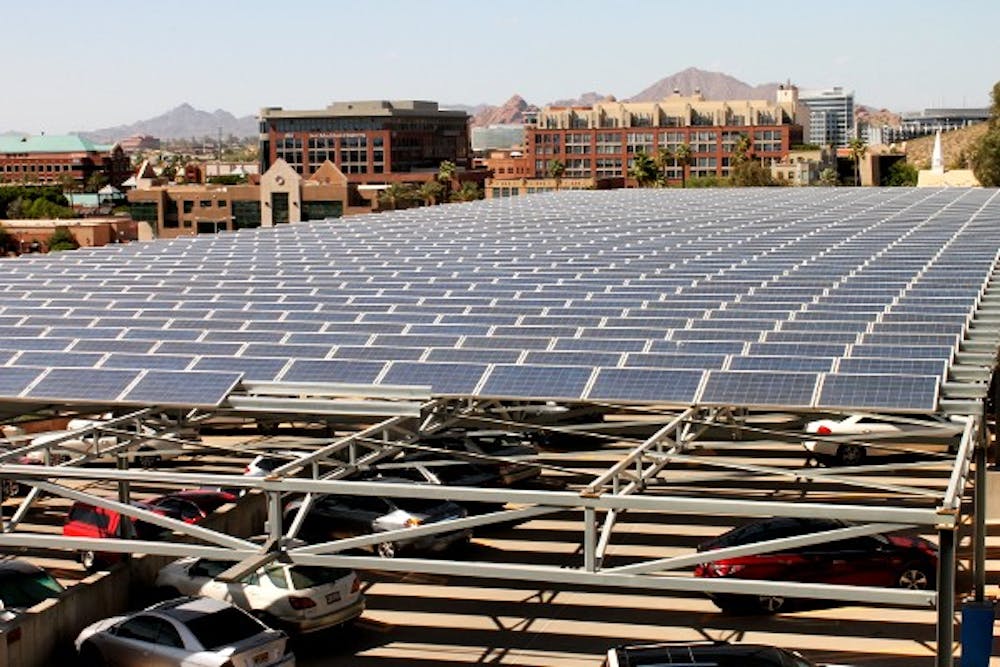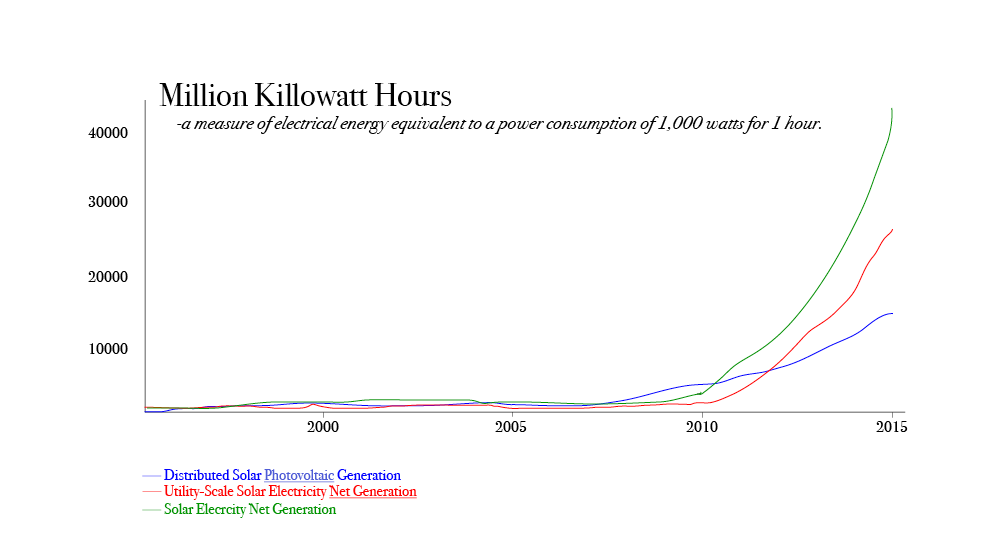ASU unveiled a solar energy deal with Arizona Public Service Electric Company Jan. 11, continuing a tradition of renewable energy initiatives, amid a national policy-trend in the other direction.
The deal locks in a level price for the next 20 years for electricity bought from a new solar facility located in Red Rock. The solar plant is a 400-acre facility that was built specifically for this deal.
Within minutes of President Donald Trump taking office, the official White House website replaced a tab highlighting climate change initiatives, with a tab outlining a broad rollback of previous regulations.
“President Trump is committed to eliminating harmful and unnecessary policies such as the Climate Action Plan and the Waters of the U.S. rule,” The White House website said.
The Climate Action Plan Trump said he would repeal was the biggest piece of environmental regulation ever put in place by a president, according to the archived Obama White House website. Despite this shift in national policy, Morgan R. Olsen, ASU executive vice president, treasurer and chief financial officer, said he will strive to minimize the University’s environmental impact, taking steps like the APS energy deal.
Olsen also said he will work to do this other ways, including commitments like the American College and University Presidents' Climate commitment.
“The Presidents' Climate Commitment is a national initiative where over 300,000 universities across the country have committed to become carbon-neutral by the year 2025 for everything but transportation,” Olsen said. “And by 2035, everything including transportation.”
While the national policy may dramatically change in the coming years, Olsen said the numbers appear to be continuing to trend in the same direction.
“The use of sustainable power sources is growing, not only in Arizona but across the country,” Olsen said. “So the trend is actually in that direction not away from it.”
According to the Environmental Information Agency, the use of renewable energy has risen at an exponential rate over the last eight years and is still rising.
Steven Gotfried, an APS spokesperson, said the Red Rock solar plant is part of this trend, and shows promise in the partnership between utilities and customers.
With this deal, ASU will continue to receive power from the plant at a set price for the next 20 years, regardless of how clean energy policy is handled at the federal level.
“This is an example of how utilities can partner with customers to develop cost-effective solar energy,” Gotfried said.
Kaysey England, the president of the Environmental Advocacy, Restoration and Technology for Humanity Club (E.A.R.T.H.) at ASU, said President Trump's pro-energy agenda may still negatively impact ASU students.
“Climate change is rapidly affecting all members of the world and it’s really putting us behind to increase more fossil-fuel-based consumption,” England said. “It’s reversing everything that the EPA has worked towards, as well as what other small activist groups, like mine, have worked towards.”
“We aren’t going to stop fighting for what we believe in,” England said. “Just because the president denies the fact of climate change, doesn’t deny us from continuing our efforts.”
E.A.R.T.H. focuses on climate change outreach and education as well as food sustainability initiatives. England said that he is ready to fight the administration’s agenda when it comes to key climate change policy.
Reach the reporter at isaac.windes@asu.edu or follow @isaacwindeschef on Twitter.
Like The State Press on Facebook and follow @statepress on Twitter.





